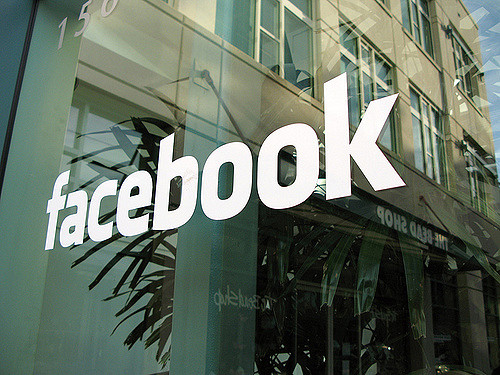Facebook Should Put More Emphasis On Workplace

Facebook (Nasdaq: FB) continues to have a tough year with users, media and regulatory authorities continuing to question the company’s privacy policies. Earlier this month, Facebook admitted that it had mishandled millions of users’ passwords for Instagram. Another article revealed how it inadvertently harvested email contacts from 1.5 million new users since May 2016. Facebook’s failure to maintain user data securely has been a cause for FTC inquiry since last year. But recently, it appears that the FTC and politicians in Washington, are gearing up to hold Zuckerberg accountable for these privacy mishaps. Despite these concerns though, the company continues to outpace market expectations and deliver strong results that keep its stock price climbing.
Facebook’s Financials
Facebook’s Q1 revenues grew 26% over the year to $15.08 billion, ahead of the market’s estimates of $14.98 billion. It reported a net income of $2.43 billion, $0.85 per share after recording a one-time charge of $3 billion as a contingency for a possible fine by the FTC. Excluding the charge and with other adjustments, earnings came in at $1.89 per share, significantly ahead of the market’s forecast of $1.61 for the quarter. A year ago, Facebook had reported an EPS of $1.69.
By segment, advertising revenues grew 26% over the year to $14.9 billion. Revenues from payments and other fees fell 4% to $165 million.
Among key metrics, daily active users grew 8% to 1.56 billion and monthly active users grew 8% to 2.38 billion. Mobile advertising revenue accounted for 93% of advertising revenues for the quarter, compared with 91% of advertising revenues a year ago.
The FTC has been probing Facebook since March 2018 after news broke out on how political consulting firm Cambridge Analytica had access to the data of 87 million Facebook users. Facebook estimates that the penalty could be in the range of $3-$5 billion. If incurred, this would be the biggest fine that FTC has ever levied on a tech company. Prior to this case, FTC had fined Google with $22.5 million in penalty for privacy practices back in 2012.
Facebook’s Stories Growth
Privacy concerns aside, one of the biggest news for Facebook in the recent quarter has been the rapid adoption of its Stories offering. Like Snapchat’s offering of the same name, Facebook Stories rely on visual information to connect Facebook users. Launched nearly two years ago, Facebook Stories allow users to add new filters and effects to their camera, post and edit them, and then publish them for a limited 24-hour period on top of the user’s News Feed. Users can share these stories with either a group of people all at once, or just one individual.
The service was launched across Facebook’s multiple platforms including Messenger, Instagram, and WhatsApp. Recent statistics reveal that both Instagram Stories and WhatsApp Status have more than 500 million daily listings. Instagram Stories hit that milestone a quarter ago. Compare that with Snapchat, which has a total user base of 190 million. Facebook is also looking to monetize these Stories by selling ads and announced that it had sold Stories ads to more than 3 million advertisers. Despite all the privacy concerns, clearly Facebook’s massive reach to targeted audience is enough to attract advertisers.
Facebook’s Privacy Efforts
Facebook claims to be focused on conducting a massive overhaul of its privacy policies. It is working towards a private, ephemeral, and encrypted communication platform to allow people to interact privately or in more intimate groups. Currently, it allows for a lot of open communication that works well for advertisers. Facebook still does not know how the shift to a more private social media platform will affect its business, but the company remains confident that encryption won’t have a big impact.
Facebook’s Platform Strategy
In 2016, Facebook had decided to launch itself in the enterprise segment. Launched as Facebook Workplace, the service was being built as a platform that would allow organizations to integrate all their applications in a single space. Based on familiar Facebook features like the News Feed, groups, and messages, Facebook Workplace was a user-friendly way of collaborating within the organization.
Facebook is driving expansion of Workplace through the continued development of integration tools available on the service. It offers integration with countless services such as Now Virtual Agent, Microsoft Share Point, Jira Cloud, Smartsheet, ADP, and HubSpot. Developers can also use the openly available Graph API and Account Management API for Workplace to create apps and generate access tokens in that community. Since its launch, Facebook Workplace has been adopted by more than 30,000 companies worldwide.
To mitigate its massive bad publicity, Facebook should put a greater emphasis on the Workplace platform, as it is non-controversial and an overall positive. It should aggressively push a PaaS strategy and invite developers to build products on the platform. Over time, it should acquire some of these products and build a comprehensive enterprise collaboration product portfolio to de-risk its consumer business. The latter, although it continues to thrive, has a clock ticking on a time bomb.
Its stock is trading at $183.78 with a market capitalization of $521.4 billion. It has fallen from its record high of $218.62 that it was trading at in July last year. Like the other tech stocks, Facebook had also fallen to a 52-week low of $123.02 in December last year.
Photo Credit: Marco Paköeningrat/Flickr.com




I've used #Facebook's #Workplace. It's great. The company should definitely through more resources behind it.